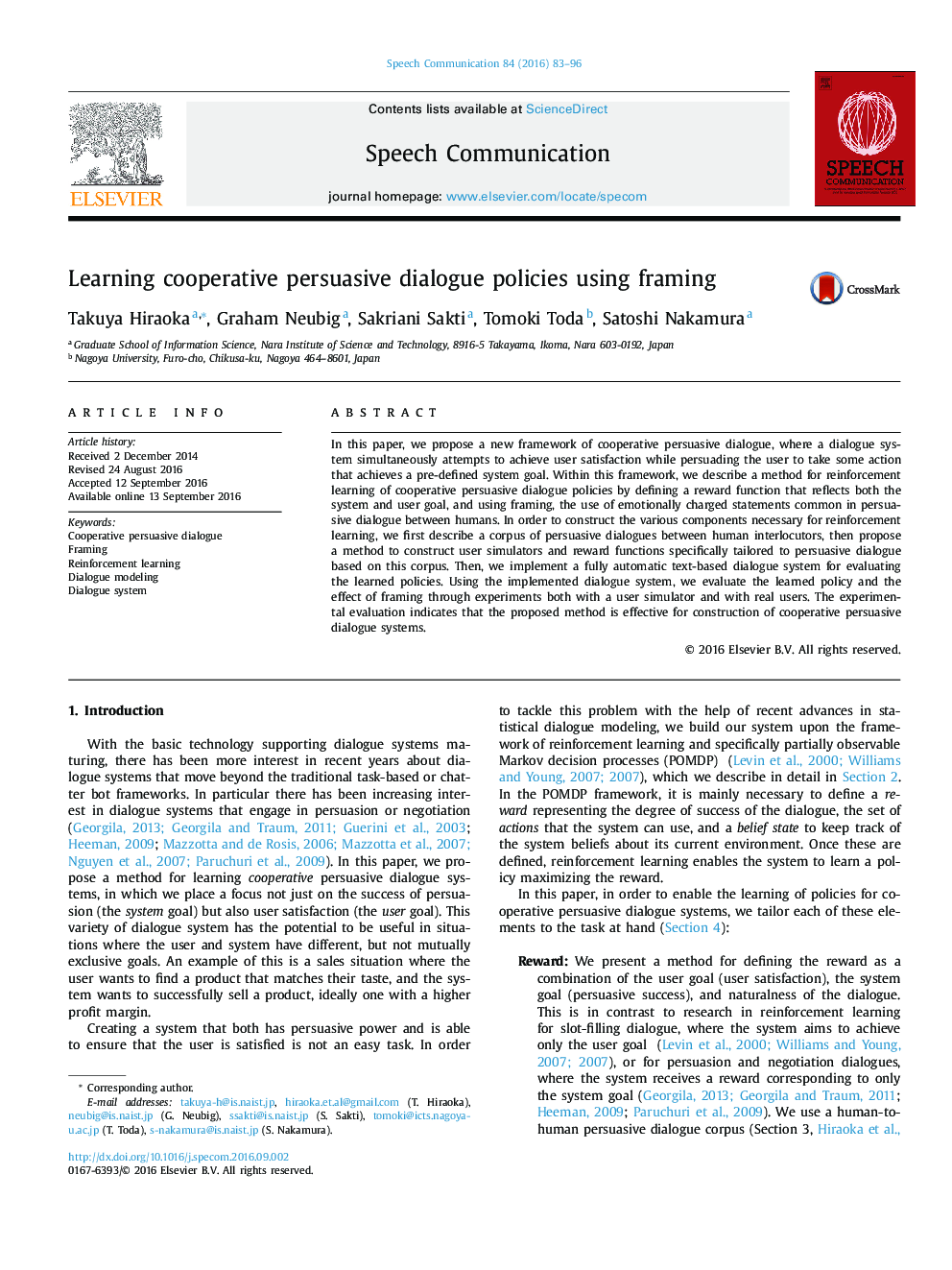| Article ID | Journal | Published Year | Pages | File Type |
|---|---|---|---|---|
| 4977876 | Speech Communication | 2016 | 14 Pages |
Abstract
In this paper, we propose a new framework of cooperative persuasive dialogue, where a dialogue system simultaneously attempts to achieve user satisfaction while persuading the user to take some action that achieves a pre-defined system goal. Within this framework, we describe a method for reinforcement learning of cooperative persuasive dialogue policies by defining a reward function that reflects both the system and user goal, and using framing, the use of emotionally charged statements common in persuasive dialogue between humans. In order to construct the various components necessary for reinforcement learning, we first describe a corpus of persuasive dialogues between human interlocutors, then propose a method to construct user simulators and reward functions specifically tailored to persuasive dialogue based on this corpus. Then, we implement a fully automatic text-based dialogue system for evaluating the learned policies. Using the implemented dialogue system, we evaluate the learned policy and the effect of framing through experiments both with a user simulator and with real users. The experimental evaluation indicates that the proposed method is effective for construction of cooperative persuasive dialogue systems.
Related Topics
Physical Sciences and Engineering
Computer Science
Signal Processing
Authors
Takuya Hiraoka, Graham Neubig, Sakriani Sakti, Tomoki Toda, Satoshi Nakamura,
